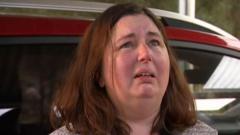A recent nationwide study by Cancer Council Australia's Generation Vape has revealed a significant drop in vaping rates among Australian adolescents. The research indicates that vaping among 14- to 17-year-olds plummeted from 17.5% at the beginning of 2023 to 14.6% by April. The decrease marks a positive outcome following the government's prohibition on disposable vapes, indicative of changing attitudes toward vaping among young Australians.
Fewer Australian Teens Are Vaping After Ban, New Study Shows

Fewer Australian Teens Are Vaping After Ban, New Study Shows
Research indicates a decline in vaping among school-aged children in Australia following the ban on disposable vapes.
Health Minister Mark Butler announced the findings, stating that Australia has effectively "turned the corner" in its fight against youth vaping. The government's actions, which include seizing over 10 million illegal vapes, have contributed to a substantial reduction in usage rates. The new regulations, which came into effect in July 2024, prohibit the production, advertisement, and distribution of single-use vapes, with nicotine-containing products now only available through pharmacies with a prescription.
Despite these efforts, a persistent black market for nicotine vapes continues to complicate enforcement. Similar regulations have also been adopted in the UK, reflecting growing concerns among health authorities about the youth vaping epidemic.
The Generation Vape survey, conducted with around 3,000 participants aged between 14 and 17, found that an overwhelming 85.4% of respondents reported never having tried vaping. Furthermore, interest in vaping is waning, with only a third of teenagers expressing curiosity about the products. Importantly, a shift in attitudes has been documented, with many current or former vapers feeling embarrassment about their usage.
Though there has been a decline in minors purchasing vapes, tobacconists and vape shops remain significant sources of vape access. Minister Butler reflected on the challenging battle against vaping and the need for ongoing efforts to combat illicit tobacco sales, noting that tobacco continues to be the leading preventable cause of death in Australia, claiming over 24,000 lives annually.
Despite these efforts, a persistent black market for nicotine vapes continues to complicate enforcement. Similar regulations have also been adopted in the UK, reflecting growing concerns among health authorities about the youth vaping epidemic.
The Generation Vape survey, conducted with around 3,000 participants aged between 14 and 17, found that an overwhelming 85.4% of respondents reported never having tried vaping. Furthermore, interest in vaping is waning, with only a third of teenagers expressing curiosity about the products. Importantly, a shift in attitudes has been documented, with many current or former vapers feeling embarrassment about their usage.
Though there has been a decline in minors purchasing vapes, tobacconists and vape shops remain significant sources of vape access. Minister Butler reflected on the challenging battle against vaping and the need for ongoing efforts to combat illicit tobacco sales, noting that tobacco continues to be the leading preventable cause of death in Australia, claiming over 24,000 lives annually.





















